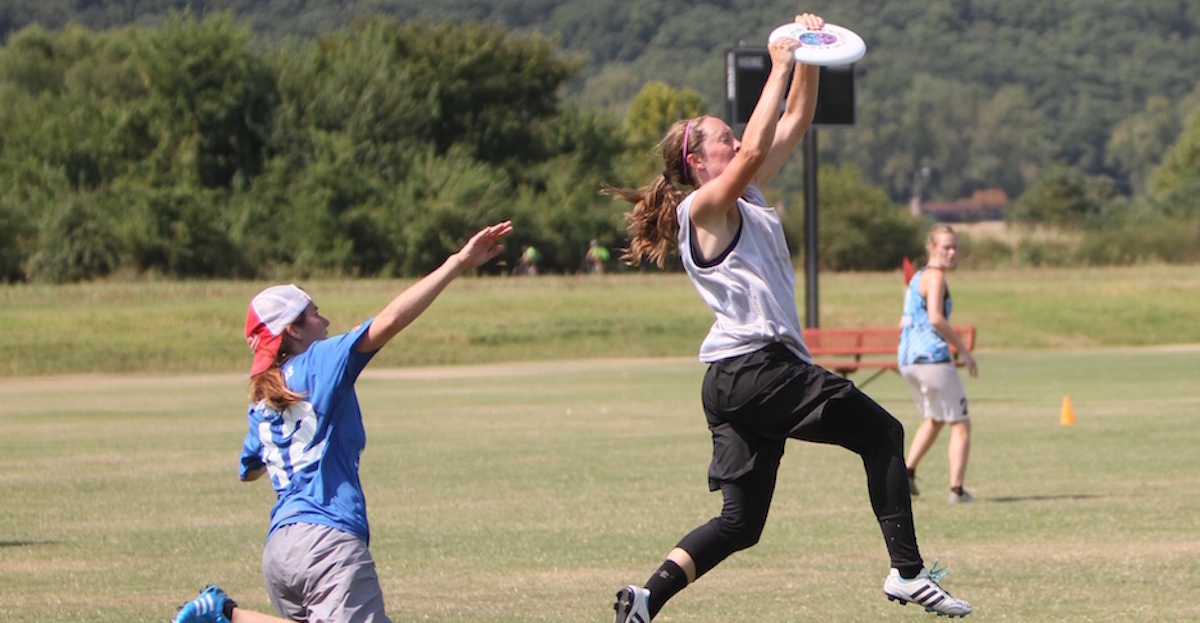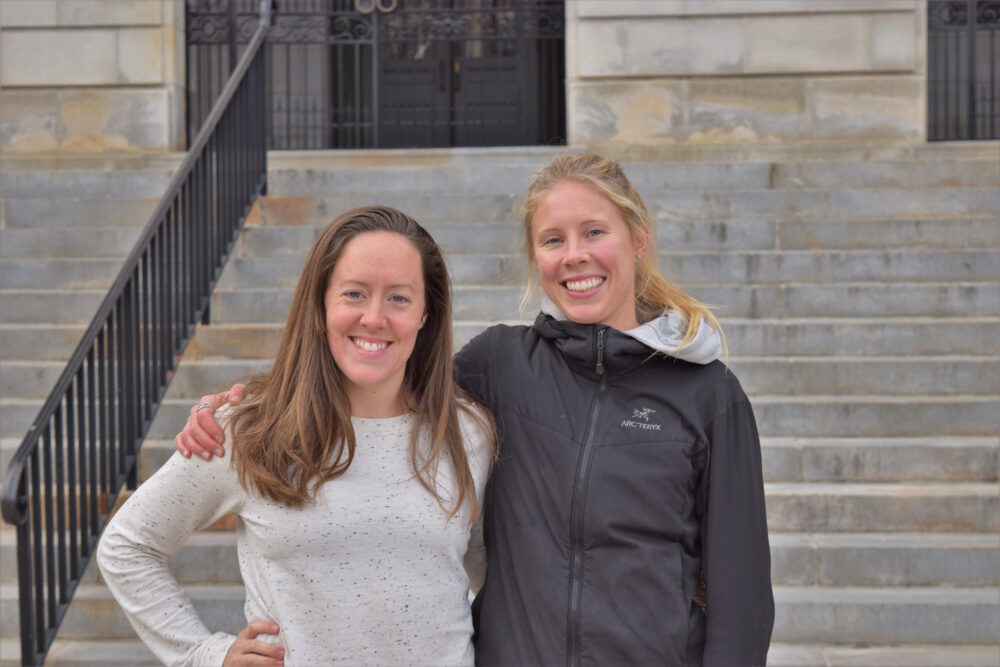
Sideline Stories: Maddie Purcell, Portland Rising
Although I didn’t have a name for it until my 20s, I’ve experienced social anxiety for most of my life. Sports have been an outlet for me, a space where the social rules and roles on and off the field are fairly prescribed and thus fairly safe. Most of my socializing as a young adult has come through pickup, league, and club sports — the sideline offering a nicely-bounded opportunity to connect with people before the game calls one or both of us back in.
Competition has become my home, my comfort zone.
Despite idolizing athletes like Michelle Kwan and the Williams sisters since childhood, I came to sports comparatively late. I got into soccer, basketball, and track in high school, where I was athletic enough to play, but the late start showed in my weak ball skills. I competed in track through my four years up at Colby where, again, I was plenty good enough to play, but rarely good enough to win.
You can imagine my jubilation when I found ultimate (as in frisbee) and, with it, a level of on-field success that had mostly eluded me thus far. Now, kids start playing ultimate in middle school, but when I jumped into competitive frisbee in my early 20s, I was only a couple years behind the norm.
Ultimate has got a GREAT learning curve. It’s fantastic. Raw athletes can find success in certain roles, but there’s so much nuance to the way a disc flies that many world-class, expert-level players still have new skills to add to their toolbox. There’s a next thing to master pretty much all the way up, which makes it attainable and inspirational at the same time.
I entered Sports BizTM my senior year of high school, creating a 5K road race called Run for the Sun in downtown Brunswick. This was my first real taste of entrepreneurship and the dozens of hats to be worn along with — marketing, logistics, accounting, securing sponsorship, pulling everything together for race day.

Following a couple of lackluster years after college, searching for purpose, I took my race organizing skills and translated them into Fyood Kitchen, a startup founded in 2016 that throws cooking competition parties — no experience required. If you’ve seen Chopped, you know the drill: teams tackle mystery ingredient baskets to create dishes in a gorgeous professional kitchen before sitting down to enjoy the results together.
Fyood is basically dinner-as-sports! It’s my absolute ideal way to socialize. (Most sports don’t have enough food in them, you see…) Again, adding the elements of competition and gamification to a social event enables me to feel comfortable. The sport of it lets me choose the buzz of competition and adrenaline over the buzz of anxiety.
Turns out there’s lots of opportunities to compete in the business sphere (though the rules aren’t as clearly defined as on the sports field). While building Fyood, I’ve been nationally and locally honored by organizations like the U.S. Small Business Association, MaineBiz, and SCORE.
However, just like on the sports field, awards are an incredible opportunity to celebrate the hustle and creativity and drive that have produced results, but it’s the behind-the-scenes teamwork that’s most meaningful in the end.
The 6 am track repeats.
The sweaty Tuesday evening throwing sessions.
The late, late nights cleaning up the kitchen after a whirlwind birthday party.
All of this competitive history finally led me to co-found Portland Rising, a professional ultimate team and the first-ever women’s pro sports team in Maine history. Launched in 2020, the state’s bicentennial year, it’s about dang time!
Of course, coronavirus had other plans, and we’ve taken our inaugural season virtual as we wait for it to be safe to return to the field, and for our fans to join us in the stands. (Fyood Kitchen is also on a COVID hiatus.)
While I would love nothing more than to be welcoming all of Maine to a Rising game right now, showcasing top women athletes competing at the professional level here in Portland, this global break has also given me the opportunity to reexamine my relationship with (and reliance upon) competition.
In what ways might my competitive comfort zone be short-sightedly holding me back? Holding all of us back?
I’m by no means alone in asking these questions. Pro sports in general have been grappling with representation, with racial and gender equity, with their role in confronting and dismantling the systemic racism that’s built into our country and our world.
Sports are inherently political and inherently competitive.
Sports bring people together like little else does.
But together doesn’t count if we’re not equal.
Together doesn’t count if Black people and women and non-binary and trans folks don’t benefit from the results.
We’ve got a lot of work to do, on and off the sports field, to create a better world for each other.
It’s time to RISE.
Together.